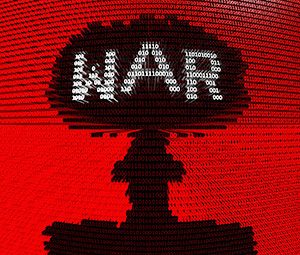 Love or loathe modern technology, our computers often hold information on sensitive personal or financial information. This can include photos of loved ones, college and academic essays, or financial records such as bank statements. How much would you pay to retrieve a college dissertation a week before the deadline? Or, a batch of wedding photos from a day that can never be relived? If the idea of being vulnerable to cyber criminals makes you anxious, take the necessary steps now so you won’t have to make a difficult decision in the future. Protect your home computer against ransomware attacks and other viruses. It could be the smartest move you ever make.
Love or loathe modern technology, our computers often hold information on sensitive personal or financial information. This can include photos of loved ones, college and academic essays, or financial records such as bank statements. How much would you pay to retrieve a college dissertation a week before the deadline? Or, a batch of wedding photos from a day that can never be relived? If the idea of being vulnerable to cyber criminals makes you anxious, take the necessary steps now so you won’t have to make a difficult decision in the future. Protect your home computer against ransomware attacks and other viruses. It could be the smartest move you ever make.
So, what exactly is Ransomware? Bloomberg recently described it as the ‘go-to hack’ for cyber criminals. It does exactly what the name implies. Criminal hackers will take control of a computer and hold an individual or company or even governmental office to ransom by encrypting files and locking the user out. The virus is usually transmitted by something as innocuous as the opening of an email or image. Just the everyday use of your computer can download the Ransomware onto your network, and once it is in, it can quickly spread to other computers in the network. Like any virus, it doesn’t discriminate. Unfortunately, without proper protection it can infect a family’s home computer just as easily as it could take down a government’s sophisticated computer network.
In recent weeks, Ransomware attacks have made news headlines around the world. In May, the WannaCry Virus hit computers not just in American but also in Europe and all other parts of the globe. It encrypted files, locking users out and causing mayhem everywhere, including huge difficulties in FedEx, NHS (UK) hospitals, and the German train system. The hackers demanded $300 worth of the digital currency Bitcoin for each user to get access to his files. Just a few days ago, a second global Ransomware attack occurred. It is not yet fully clear as to who was behind the attack, nor what the motives of the cyber criminals were. What is clear is that the virus has spread rapidly, causing devastation in its wake.
One other certainty is that these will not be the last Ransomware attacks to make the headlines. Sadly, as became apparent with WannaCry, simple steps could have been taken to protect computers against Ransomware. Backing up critical files and keeping anti-virus software up to date are simple procedures that can provide the needed protection against an attack. Moreover, it is critical to ensure that your anti-virus software has anti-Ransomware protection. It was too late for many affected by WannaCry.
Sometimes people fall into the trap of not taking the steps to protect their PCs. They tend to think along the lines of: ‘I just use the computer for Facebook’, or ‘for Skyping the kids’, as if using the computer for simple tasks will somehow cause it to be overlooked by a virus. Or even if they pay attention to the news stories about the attacks, they may see them as remote threats: ‘A rogue state or criminal gang would not target me’. And the problem is that statement is true; they do not target you alone. They target everyone who leaves their computer’s ‘door’ open.
Like most criminals, Ransomware hackers prey on the weak and the vulnerable. In this case, they prey on networks and systems that are open to attacks. Recent attacks have hit computers using the outdated Windows XP, a Microsoft product, but they are not limited to this operating system alone. If you live in a ‘bad neighbourhood’, you take steps to protect your home. The same principle should be applied to your PC. Cyber-crime, as we have seen time and time again, has created a ‘bad neighbourhood’ in all corners of the globe, no matter which operating system is used. If you do not have sophisticated anti-ransomware software, then you should get it now, before it is too late.